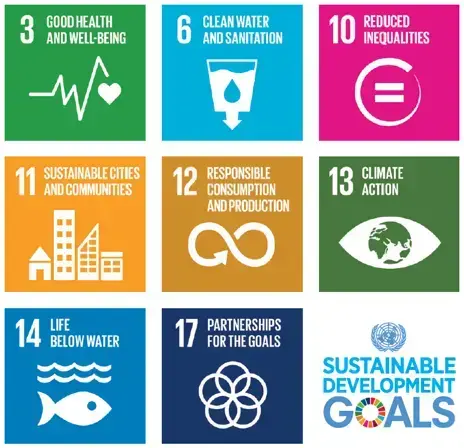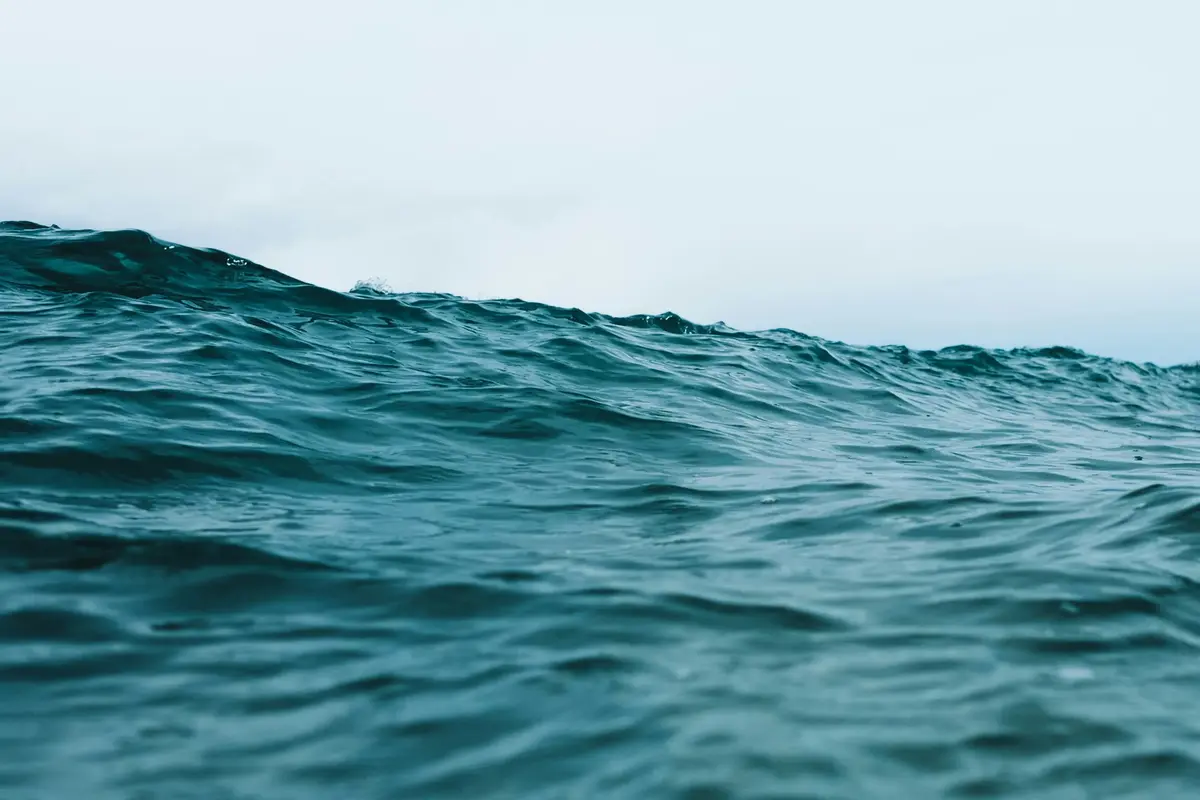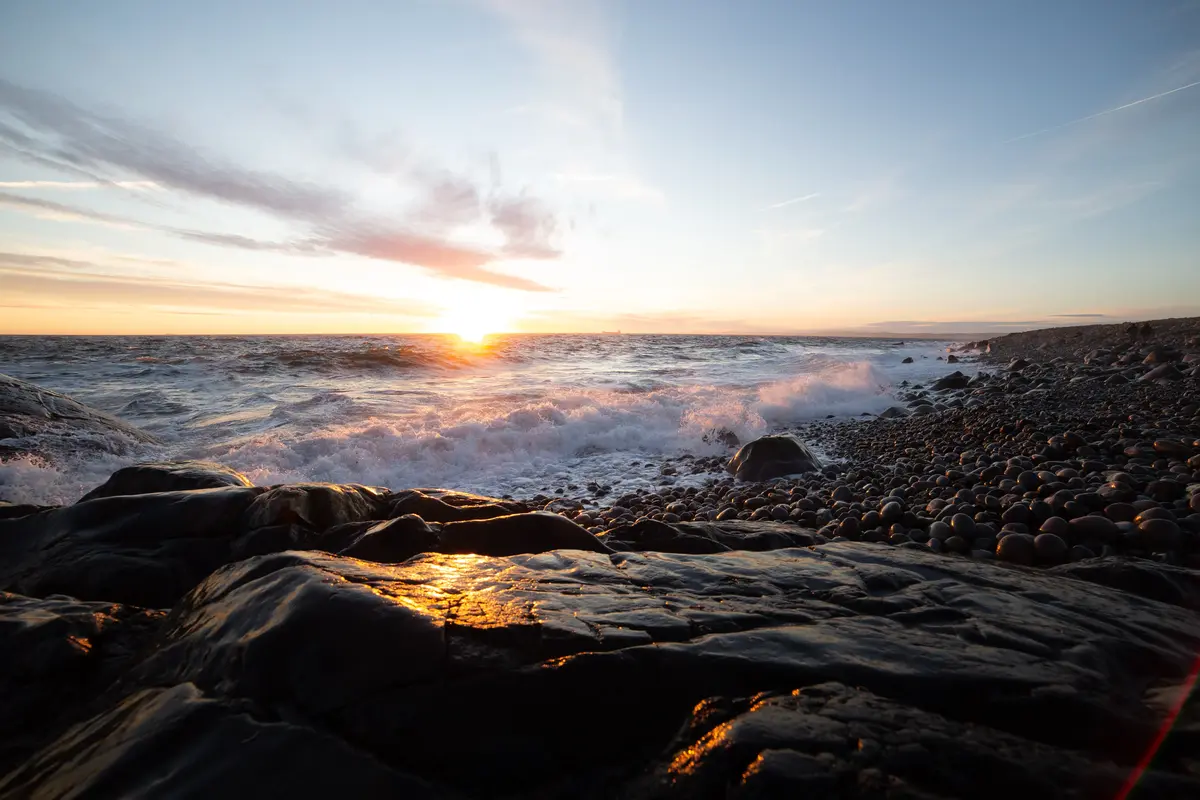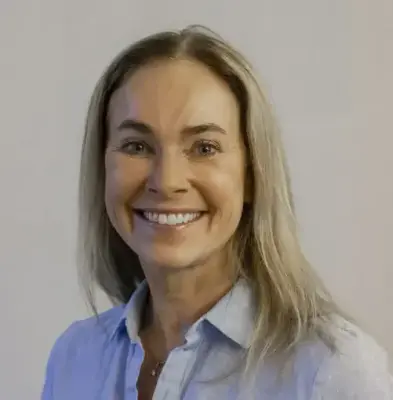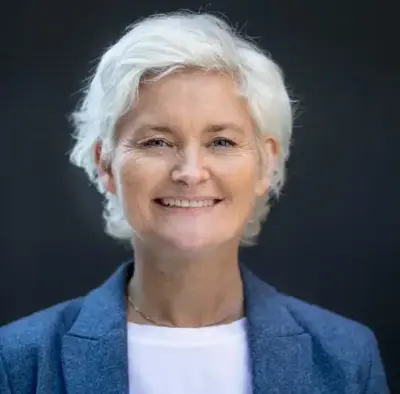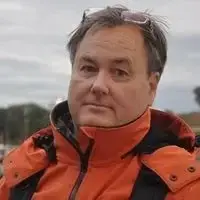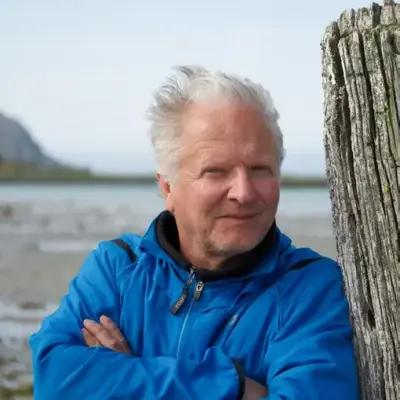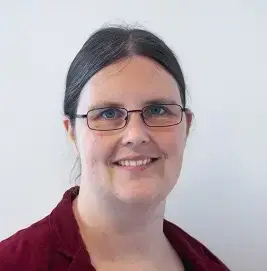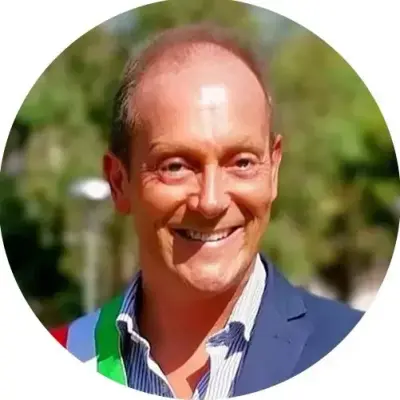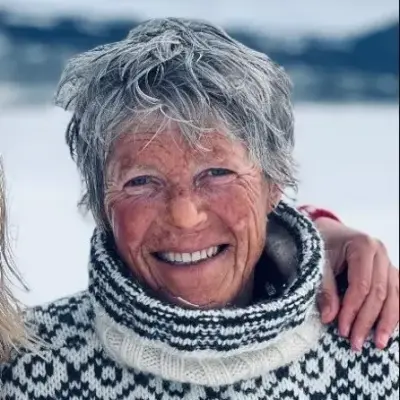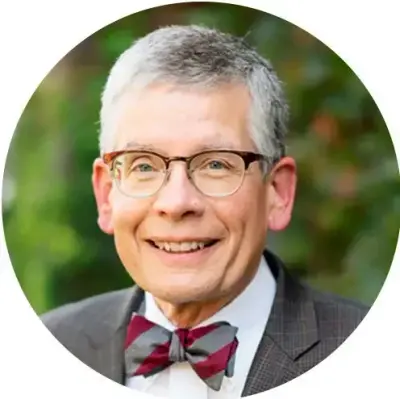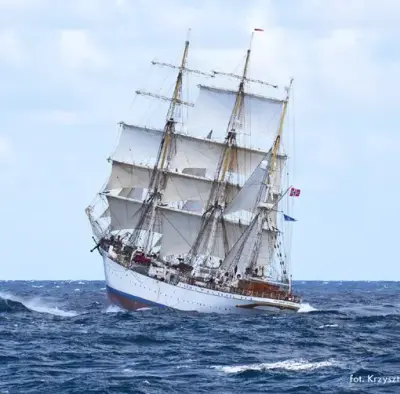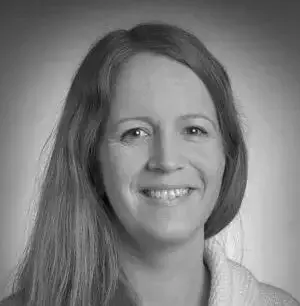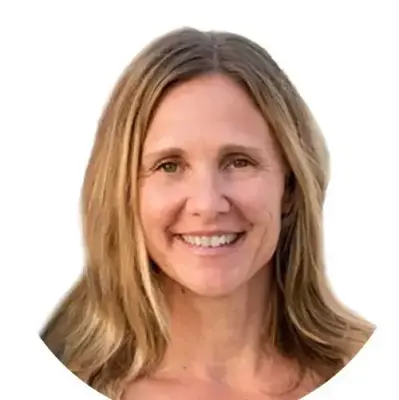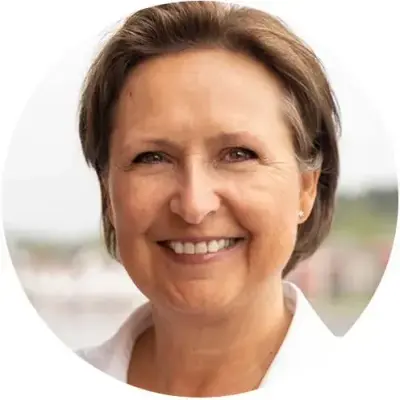The Global Water Crisis and the Coming Battle for the Right to Water
This year’s conference is presented in collaboration with Larvik Borough, Vestfold County Council, Telemark County Council and Augsburg University, Minnesota (USA).
This is a special year. We are celebrating 110 years since Thor Heyerdahl was born in Larvik.
The Thor Heyerdahl International Speech 2024 will be held by Professor Terje Tvedt. He is a Norwegian academic, author and documentary filmmaker. Tvedt is currently a professor at the Department of Geography, University of Bergen and Professor in Global History, University of Oslo, Norway. He has previously been a professor of political science and development studies.
In addition we have several speakers that are supporting our conference theme.
We are experiencing a global ocean crisis, and an increased battle for the right to clean water. What will our future look like? Is there hope?
The conference is inspired by United nations World Water Day and World Oceans Day
World Water Day - 22nd March - theme: WATER FOR PROSPERITY AND PEACE
World Oceans Day - 8th June - theme: PLANET OCEANS: TIDES ARE CHANGING
The goals of The Thor Heyerdahl International Day 2024 are:
- To act and put the United Nations Sustainable Development Goals on the agenda
- To contribute with lectures on international matters
- To learn from one another and inspire to action
The International Day focuses on the following United Nations Sustainable Development Goals:
The UN Sustainable Development Goals, established in 2015, provide a broad and ambitious framework for creating a sustainable future for all. If we are to succeed, we need to develop new knowledge. The Thor Heyerdahl International Day conference works to contribute as an arena to present global challenges and best practice solutions.
Programme June 5th 2024
18.00 - 18.05: Welcome by conferencier Bettine Hoff Hermanson, Director, Augsburg University, USA
Opening remarks by Mayor Birgitta Gulla Løken
Opening remarks by County Mayor Anne Strømøy
The Thor Heyerdahl International Lectures 2024:
Reidar Solsvik, curator, The Kon-Tiki Museum
18.20 - 18.35: Why is the Oslofjord sick and what can we do about it?
Marine biologist Henning Røed, Oslofjordens Friluftsråd
18.35 - 18.45: Presentasjon av utstillingen «Nestenutryddelsen»
på Hvalfangstmuseet i Sandefjord
Presentation of the exhibition, “On the Brink of Extinction”
at the Whaling Museum in Sandefjord
18.45 - 18.55: Water recycling as an opportunity - perspective of a public water supplier
Minori Matoba, Strategic Asset Management and Silke Mollenhauer,
International Cooperation and Water Innovation Networks,
Public water provider OOWV, Northwestern Lower Saxony, Germany
18.55 - 19.05: Climate change and possible impacts for New Zealand, project water access 2022 New Zealand’s warmest year on record
Liv Arnesen, Expedition leader, New Zealand
19.05 - 19.15: The ethical implications for our water crisis and the importance of education
Dr. Paul C. Pribbenow, President of Augsburg University, Minneapolis, MN, USA
19.15 - 19.30: Expedition One Ocean. Statsraad Lehmkuhls around the world journey
Part of the UN’s decade of ocean research. With the leader of the
non-profit organisation Håkon Vatle
19.30 – 19.50 Break
19.50 – 20.55 World History, the power of water and hope
Terje Tvedt, University of Bergen, University of Oslo
20.55 – 21.00 Closing reflections by Director of The Vestfold Museums, Lene Walle
- 1/1
2024: OUR THURSDAY PLANET II - WATER The Global Water Crisis and the Coming Battle for the Right to Water
CONTEXT: WHY?
Thor Heyerdahl’s aim to persevere the ocean waterways has been a key component to his lifetime work.
He repeatedly crossed different ocean pathways on primitive vessels, to demonstrate that the world’s oceans were “conduits for the ancient civilizations, rather than insurmountable obstacles.” He discovered early that the oceans were becoming a trash-can and noted early (and alarmed politicians) that discarded plastic was discovered in the oceans.
In 2012 the THI held its international day on the theme of “Our Thirsty Planet” with keynote speaker Terje Tvedt’s lecture titled “Water and the Development of Human Civilization: Some Perspectives.”
12 years later, the focus on and efforts to save our oceans and water is just as important if not more, and hence, our conversations related to the challenges that stand before us have to be addressed again (and ongoingly). What has changed since we discussed this issue in 2012? What have we learnt during these 12 years? What have we missed? And where does our focus need to be in the imminent future? And how does this topic align with the last previous years’ emphasis on climate change?
Climate change will have several implications, as numerous adverse impacts are expected for some populations in terms of:
- access to clean water
- access to sufficient food
- stable health conditions
- ecosystem resources
- security of settlements
Climate change is expected to exacerbate current stresses on water resources. On a regional scale, mountain snowpack, glaciers, and small ice caps play a crucial role in fresh water availability. Widespread mass losses from glaciers and reductions in snow cover over recent decades are projected to accelerate throughout the 21st century, reducing water availability, hydropower potential, and the changing seasonality of flows in regions supplied by meltwater from major mountain ranges (e.g. Hindu-Kush, Himalaya, Andes), where more than one-sixth of the world’s population currently lives. There is also high confidence that many semi-arid areas (e.g. the Mediterranean Basin, western United States, southern Africa, and northeastern Brazil) will suffer a decrease in water resources due to climate change.
The concept of a ’World Oceans Day’ was first proposed in 1992 at the Earth Summit in Rio de Janeiro as a way to celebrate our world’s shared ocean and our personal connection to the sea, as well as to raise awareness about the crucial role the ocean plays in our lives and the important ways people can help protect it.
The World Oceans Day 2024, taking place annually on June 8, will this year engage in the theme of Planet Ocean: Tides are Changing. The conversations will aim to uncover the hidden facets of planet Earth and create a fresh surge of enthusiasm for preserving and safeguarding the ocean and our entire blue planet.
- 1/1
Kyststien, Mølen. Photo: VisitVestfold/Yeast Studio.
Augsburg University
Augsburg University educates students to be informed citizens, thoughtful stewards, critical thinkers, and responsible leaders. An Augsburg education is defined by excellence in the liberal arts and professional studies, guided by the faith and values of the Lutheran church, and shaped by its urban and global settings.
Students from 38 U.S. states and 44 countries call Augsburg University home. The university has maintained a strong academic reputation defined by excellence in the liberal arts and professional studies since 1869. A safe and welcoming campus in the heart of
Minneapolis, Augsburg offers undergraduate and graduate degrees to nearly 3,200 diverse students.
To increase global understanding, the university’s Center for Global Education and Experience (CGEE) supports the mission by delivering high-impact, experiential programming in Africa, Europe, and Latin America and at home. These programs are designed to learn from communities and groups working for social change, and students engage in their own transformation to bring about the changes they envision for our world. CGEE believes that global education leads to greater personal and social responsibility.
University of Oslo
The University of Oslo is a leading European university Norways largest and oldest. UiO has a strong international commitment and is involved in international cooperation within research, education and teaching. Global UiO- International collaboration, Through cooperation across academic, institutional and national boundaries, we will develop knowledge that contributes to a sustainable world. The University of Oslo aims to make a significant contribution to the knowledge base that is needed in order to address major global challenges
(Source; Uio’s web pages).
University of Bergen
The University of Bergen is an internationally recognized research university. Academic diversity and high quality are fundamental to us. Priority areas. The University of Bergen has three strategic areas: Ocean, Climate and Energy Transitions and Global Challenges. Within these areas, UiB will contribute to society with excellent research, education, interdisciplinary cooperation and dissemination of knowledge and innovation. The University of Bergen is Norway’s largest marine university, with research and education of a high international standard and several world leading research environments
(Source; Uio’s web pages).
Vestfold County Council
Vestfold is historically a maritime county with its extensive coastline and long tradition of using the sea as a transport route to reach the world; from Viking times via whaling and shipbuilding industry to the 2000s supplier industry within subsea, oil and gas. Today, Vestfold is Norway’s fifth largest export county, where the largest product groups are petroleum products, larvikite and high-tech industrial products.
Vestfold County Council is the governing administration for region Vestfold, re-established in 2024 and employs 2,400 people. The coastal towns of Vestfold are located west of the Oslofjord and border with Buskerud and Telemark counties. Vestfold is the smallest county in terms of area, apart from Oslo, but is one of the fast-growing regions with strong population growth, business development and which represents an important forest- and agricultural region for Norway.
In Vestfold, close to 254,000 inhabitants live in six robust and strong municipalities with their own solid professional environments. On a foundation of cooperation, innovation and efficient management, Vestfold County Council functions as a unifying regional coordinator in several areas. The county council and the municipalities work according to the UN’s sustainability goals, with many similar priorities, challenges, and ambitions. Through regional, national, and international cooperation and partnership, Vestfold County Council works strategically with the municipalities on a political and professional level with areas that are important to the region. Together, they aim to realize a sustainable Vestfold that will help stop climate change and the loss of natural diversity.
Telemark County Council
Telemark is known as a center for industry, developed over the centuries from its vast raw materials and hydroelectric resources.
Telemark County Council is one of the region’s largest and most important workplaces with 2,000 employees. The county has 177,000 inhabitants, and 17 municipalities.
Telemark County Council works according to the UN’s sustainability goals, and to fulfill its mission of sustainable development which has three dimensions: environmental, social, and economic sustainability. As climate change is one of the biggest challenges facing the world today, the County Council has a goal of reducing its greenhouse gas emissions by 60 % by 2030, and by 2050 to have a low-emission society. The aim is to contribute to a climate policy that at least meets the county’s share of the national environmental targets and to make Telemark a pioneering county for environmentally friendly energy use. The County Council must have a consistent environmental and climate focus in all its areas of responsibility.
The speekers
- 1/14
Birgitte Gulla Løken, ordfører i Larvik kommune. - 2/14
Anne Strømøy, fylkesordfører i Vestfold fylkeskommune. - 3/14
Reidar Solsvik, Curator at The Kon-Tiki Museum. - 4/14
Terje Tvedt, University of Bergen, University of Oslo. - 5/14
Henning Røed, prosjektkoordinator ved Oslofjordens friluftsråd. - 6/14
Silke Mollenhauer, OOWV, Lower Saxony, Germany. - 7/14
Minori Matoba, OOWV, Lower Saxony, Germany. - 8/14
Mauro Demichelis, Mayor of Andora, Italy - 9/14
Liv Arnesen, Expedition Leader, Water Access Expedition, New Zealand. - 10/14
Dr. Paul C. Pribbenow, President of Augsburg University, Minneapolis, MN, USA. - 11/14
Statsraad Lehmkuhl, One Ocean expedition. - 12/14
Hanne Garmel, rådgiver, Hvalfangstmuseet. - 13/14
Bettine Hoff Hermanson, Master of Ceremonies, Augsburg University, Minneapolis, MN, USA. - 14/14
Lene Walle, Director of The Vestfold Museum, Norway.
